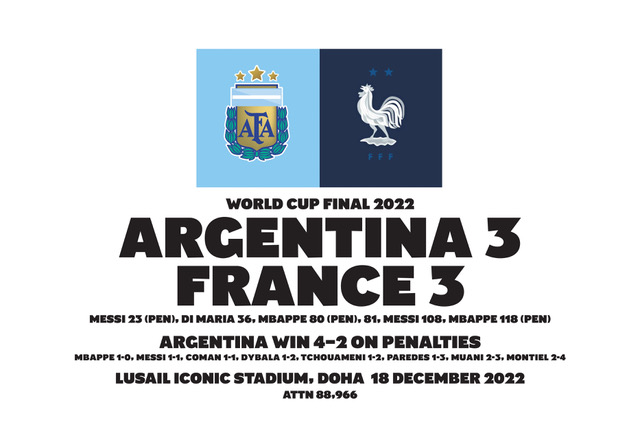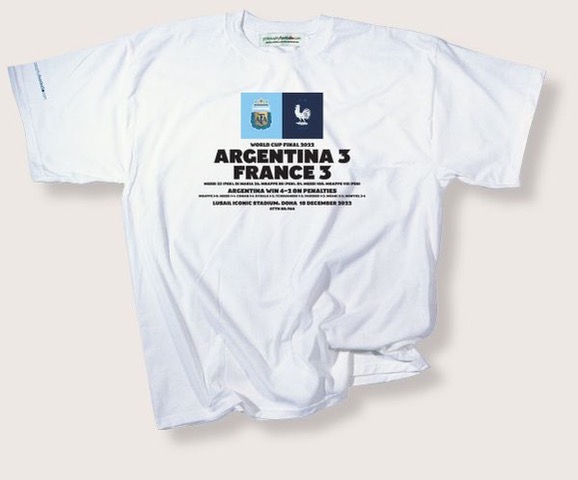There’s not a lot I nowadays agree with Julie Burchill on; her decline and fall to reactionary bugbears (alongside partner in late-1970s verbal punk vitriol Tony Parsons) is deservedly notorious. However when Julie, in her customary barbed style, declared: ‘Sport. Personality. Now there’s an interesting idea,’ well, I had to laugh – and agree.
Wednesday night’s prime-time slot for the BBC Sports Personality of the Year is, and always has been, a platform for the celebritification of sport. The event serves to entrench the entirely false division between sport and the social, cultural, and political context that frames it. It denies the existence of a (wholly political) sporting economy that is a key factor in success – and failure. To buy into this binary between sport and politics is to ignore how all sports are socially constructed. OK, perhaps it isn’t Gary Lineker and Clare Balding’s job to tackle any of this during the show, but the enduring resistance to doing so by too much of the sporting establishment, including most of the sports media, elevates sport as almost entirely lacking context. Or as CLR James in his 1963 book Beyond a Boundary famously put it:
“What do they know of cricket who only cricket know?”
An idea further developed by Garry Whannel, whose 1983 book Blowing the Whistle: The Politics of Sport sought to establish a socio-cultural understanding of the games we watch, and play :
“Sport is marked down as a natural, taken-for-granted activity. You don’t need to talk or write about it. You just do it.”
It was Garry’s book that more than any influence started me thinking about the sport I just ‘did’ (at the time road running), and within a year I’d had my first piece published, on the London Marathon as a participatory-spectacle, in the magazine Marxism Today.
So, almost 60 years on from Beyond a Boundary, almost 40 years on from Blowing The Whistle, how about if we rearrange S-P-O-T-Y to spell ‘Sports Politics of the Year’ and think about what 2022 might look like through such a lens?
To start off with, the men’s Football World Cup in Qatar. A groundbreaking recognition that ‘sport isn’t political’ is oxymoronic? No, not quite. The approach of the Guardian, liberal opinion and the wider sports media more widely, was frankly embarrassing. The Guardian declared this was ‘a World Cup like no other’ an entirely ahistorical approach ignoring the host of the 1934 tournament, one Benito Mussolini, the brutal Argentinian Dictatorship hosting 1978 or Vladimir Putin in 2018 only four years after his invasion of Ukraine’s Crimea region, and that’s just for starters. Once the games kicked off the Guardian’s grandly titled coverage ‘Qatar: Beyond the Football’ became a mere footnote to the match reports, as it was always destined to be. Meanwhile, the England team’s protest amounted to wearing an armband, until it was decided in the face of FIFA opposition even this was too much. Far more significant than any of this damp squib-ness was the widespread popularisation of the Palestine flag and cause by fans, in particular Morocco’s, and players too, on this, the biggest global sporting stage of all. Perhaps now European FAs, commentators, pundits and football journalists might question why the Israeli team competed in the European World Cup and Euro’s qualifying groups and their clubs compete in UEFA European competitions, but Palestine where they belong in the Asian confederation contests. Because Israel was expelled due to their militarised mistreatment of Palestinians. Will the aforementioned ever mention this salient fact? I’m not holding my breath.
And then the Final. England’s rivalry with Argentina, on and off the pitch is every bit as bitter as ours with Germany. Rivalries constructed by playing each other in crucial and incident-strewn World Cup games, England v Argentina World Cup ’66 Quarter Final: Argentina captain Rattin sent off. World Cup ’86 quarter Final England v Argentina: the infamous ‘Hand of God’ Maradona goal. World Cup ’98 last sixteen game, England v Argentina: David Beckham sent off. World Cup ’02 group stage: Beckham’s redemption, his penalty securing England’s victory. But of course, just like Germany, the rivalry is about something else too: the Falklands/ Malvinas. In the immediate aftermath of that war 40 years ago Eric Hobsbawm rather neatly summed up the mood at the time:
“Everybody’s looking down on us and if anything pitying us, we can’t even beat the Argentinians or anyone else at football anymore.”
Of course Eric wasn’t approving of such attitudes but he was realistic enough to recognise how widespread they were and arguably even more so four decades on. So in spite of this, how to explain the widespread recognition that last Sunday’s World Cup Final was the best ever, and Lionel Messi entirely deserving of the accolade ‘Greatest of all time’? Because football represents easily the most popular version of both nationalism and internationalism.
Where does the Women’s Euros fit in? Well, England won it, beating Germany to boot! There’s nothing that boosts sport like domestic success. In England women’s football case via two particular dimensions, both of which deserve to be neither overestimated nor underestimated.
First, the women’s game provides a very different way for fans to parade our Englishness, free of, as the rather well-worn phrase puts it, ‘toxic masculinity’. As someone who has followed England to four World Cups I’d argue that this ‘soft Englishness’ has always existed and been majoritarian in England fan culture but when a coked-up lad stuffs a flaming flare up his arse the afternoon England men are in a Euros final, the media framing would convince most we’re all like that. The absence of such behaviour enabled England women’s fans to establish a different framing, but a gut patriotism lacking such softening still exists, and it won’t be entirely reversed by England women winning the Euros alone. This is a version of Englishness embedded in a martial, imperial tradition mixed up with an anti-social behaviour strand, all of which ‘toxic masculinity’ alone isn’t enough to account for.
Second, the impact on women’s participation playing football. Attendance levels for England women, the October game versus USA at Wembley sold out, the April game versus Brazil will likely do the same. The top Women’s clubs – Chelsea, Man City, Man Utd, Arsenal – can fill Stamford Bridge, the Etihad, Emirates and Old Trafford with tens of thousands of fans. Good, but this is spectating, not sport. The key to a healthier society, in every sense of the word, is doing sport, not just watching it. Elite success boosts the latter, but has only a limited effect on the former. Transforming school sport to enable all girls (and boys) to play football from the earliest possible age is key, with such opportunities to be – crucially – vastly expanded for post-school years. Don’t bet your house on any of this happening on the scale required.
Uniquely, across October to December England were competing in four World Cups. In the men’s football World Cup England exited at the Quarter Final stage (statistically top eight is our ranking in this tournament). The men’s rugby league, semi-final, exit. The England Women’s Rugby team came oh-so-close to lifting their World Cup trophy, but ended up losing as finalists. Only the men’s T20 triumphed to be crowned World Cup winners. Those of us who share the Jamesian philosophy however would ask, apart from football, are any of these others truly World Cups? Sure, aping football they have the title but the contenders are absolutely restricted to ex British Empire states with assorted hangers-on, not much more than making up the numbers for the group stages. Two factors account for this. One, football was spread worldwide by trade, unlike cricket and rugby by empire. Two, football requires next to no facilities, simple rules, all body shapes can excel, and there’s a global path to a professional career. Or in other words, all sports are socially constructed.
Ireland’s test series triumph over the All Blacks absolutely deserves to be ranked as one of the greatest team sport achievements of all time, never mind 2022. But Irish rugby is a bit of a curiosity. Unlike with football and the Olympics, they play with a United Ireland team. The all-Ireland Irish Rugby Football Union predates 1916 and despite partition was never dissolved, this most English, and most certainly not Gaelic, of sports with its heartland clubs Leinster and Munster never cast out, nor those who stick with the Union, Ulster another rugby heartland club, and in every other regard rejecting any notion of a United Ireland. And just like football with Jack Charlton, the team’s greatest success under an English manager, Andy Farrell. Given the centrality of Republicanism vs Unionism to politics north of the border, and a resurgent Sinn Fein south of the border, this aberration shows exactly how central politics can be to sport – and sport to politics. While it doesn’t do to overstate the significance of a team that unites both sides, nor does it help to almost entirely ignore this most unexpected symbol of what a united Ireland could look like.
So there we have it: a first stab at an alternative SPOTY. Not to ruin our enjoyment of sport, watching or doing, but to enjoy, enrich and empower. I’m sure Messi, Mbappé, Beth Mead, Ben Stokes and Andy Farrell will enjoy the ‘other’ SPOTY night out and if they win them, their gongs will be entirely deserved. But sport and politics are all the poorer when each are treated as anything but indivisible from the other.
Mark Perryman is a Research Fellow in Sport and Leisure Culture at the University of Brighton and co-founder of Philosophy Football.
He can be followed via Twitter @MarkPerryman.
Further Reading
- CLR James Beyond a Boundary
- Garry Whannel Original 1983 edition Blowing the Whistle : The Politics of Sport Updated edition Culture, Politics and Sport : Blowing the Whistle Revisited
Philosophy Football’s ‘alternative SPOTY’ T-shirt selection is available here.


